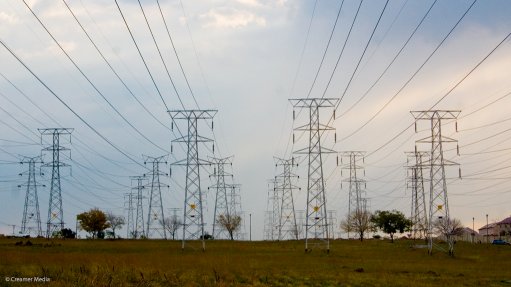
Photo by: Duane Daws
Gas has the potential to account for more than 40% of the electricity generated in sub-Saharan Africa (SSA) from 2020 onwards, a new report by McKinsey & Company shows, adding that, by 2040, gas-fired capacity could be responsible for more than 700 terawatt-hours in the region.
The study projects that SSA could consume nearly 1 600-terawatt hours by 2040, four times the amount consumed in the territory in 2010. However, about $490-billion in power-related investment will be needed by that date to address the current backlogs and meet rising demand – almost 600-million people in SSA currently lack access to electricity.
It concludes that, if every country builds enough to meet its domestic needs, gas will also dominate the energy mix by 2040, comprising 44% of supply, followed by coal (23%), hydro (16%) and solar (8%).
With the large gas discoveries in Mozambique and Tanzania over the past half-decade, McKinsey’s Adam Kendall says that gas has become a much more attractive opportunity. There is potential, he estimates, for about 400 GW of gas-generated power, with Mozambique, Nigeria and Tanzania alone representing 60% of the total capacity.
“[But] Africa is significantly underexplored from a gas perspective, so there is the real possibility of further gas discoveries on the east or west coasts. Tapping such sources could result in a much cheaper levelised cost of energy.”
The levelised cost of gas capacity across the region starts low, the report notes, ranging between $47 a megawatt-hour and $65 a megawatt-hour.
Gas is inexpensive mainly because of government subsidies, which Kendall warns could lower the willingness of gas producers to sell. “Over time, we expect these subsidies to decrease, meaning that the levelised cost of gas-fired technology will increase to more than $90 a megawatt-hour by 2040.”
Gas discoveries, Kendall avers, could be “game changers”, especially if the price at which the resource can be produced is lower than the average levelised cost of other choices.
In addition to the conventional sources, the report also highlights that Mauritania, Nigeria and South Africa have further potential of about 62 GW in shale gas and 3 GW in coal-bed methane.
“The effect of unconventional gas on the power markets will depend on where the gas is discovered and the resulting cost of power. Shale gas in South Africa will potentially have the biggest effect on the markets,” the reports suggests, arguing that it could displace regional coal-fired power that would otherwise be built.